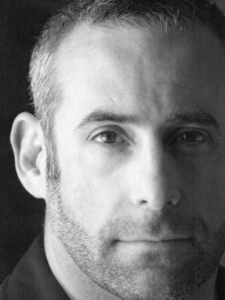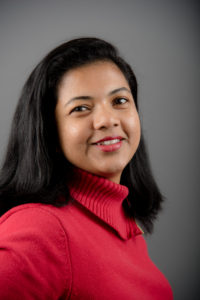THE RABBI AND THE REFUGEE
Two people with vastly backgrounds who were directly impacted by hate and division came together to build this unique organization that creates bridges between refugee and citizen, aggressor and survivor, and people and policy. This is our story.

As a Jewish gay man, I have understood only too well the many ways that hate creates danger and breaks down societies. In Atlanta, the foundation of my rabbinate is based on building bridges to ensure symbols of hate are not used to comprise the health and welfare of all Georgians. Now, it is heartbreaking for me to see Jews fleeing once again, under the specter of war, from Ukraine, where my personal Jewish ancestors called home.
Recently, I watched Ukraine’s only female rabbi lead Shabbat services as she was fleeing her own home; a testament to her resiliency and the resiliency of so many who have faced wars. Like so many, I am quite tuned into the brutal and insidious nature of this particular war. Yet, my consciousness has been growing in acknowledgement that this is not unique. War is often particularly malicious with attacks on cultural, ethnic, and religious groups all around the world. It is clear that non-democratic systems create aggressors.
We are aware of the vast number of refugees and displaced people seeking refuge. While it is heartening to see countries open their border, I am aware of many other refugee experiences that do no include such a concerted effort, even in wartime. For me, this war expands my awareness of all wars around the world and violence within the U.S. Moreover, I understand how important Bridges Faith Initiative is as it connects the rights of civilian security with asylee and refugee policy.

I have known war for far too long. For the first 30 years of my life I lived in Sri Lanka, a country torn by a civil war fought on ethno-racial lines. When I hear of the hospitals being bombed and mass graves being found in Ukraine, it takes me back to the April of 2009, when my morning routine was to find out if my friends and family had survived the night. United Nations experts said war crimes, crimes against humanity and mass atrocities were committed in Sri Lanka. I know all too well how unjust systems and racial hatred lead to war, and how war creates refugees. It is to break this cycle that we started this organization.
In 2009, my husband a journalist, was imprisoned and tortured in Sri Lanka, and I had to flee because the Sri Lanka government was attacking me for speaking out against his unjust imprisonment and advocating for peace in my home country. I escaped, claimed asylum, and advocated for his successful release from the U.S.
I know first-hand how difficult and terrifying the asylum process is. I also know I was one of the lucky ones who spoke English and had the assistance of a lawyer. These experiences have led me to dedicate my life to making the asylum process, as well as its resources easily available to asylum seekers, no matter what language they speak.
Being a refugee in adulthood is very difficult. Suddenly, all prior life and experiences are not counted in the U.S. You are only seen as a “refugee”, and not as a whole person seeking refuge. I learned how the U.S. Congress works, how advocacy works, and how immigration laws are supposed to work in a very short space of time. Rabbi Joshua gave me the opportunity and platform to raise my voice and join with others to work for a more peaceful world, putting an end to hate.